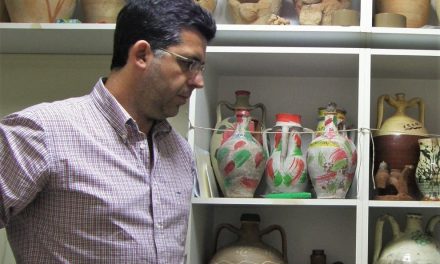“Greek breakfast” is an initiative by the Hellenic Chamber of Hotels that aims to incorporate the country’s gastronomic wealth into the overall experience of Greek and foreign hotel guests. In essence, the first meal of the day serves, symbolically and practically, as an introduction to the riches of the Greek land.
It is a carefully structured program that requires participating hotels to rigorously comply with specific standards in order to ensure the quality and authenticity of the products and recipes offered. It is an excellent opportunity for visitors to taste local cuisine, and discover the country’s gastronomic and cultural heritage.
The value of the Mediterranean diet
The Mediterranean diet is well-known for promoting healthy eating habits; in 2013 it was in fact inscribed on UNESCO’s Representative List of the Intangible Cultural Heritage of Humanity. As explained on UNESCO’s official site, this diet “emphasizes values of hospitality, neighbourliness, intercultural dialogue and creativity, and a way of life guided by respect for diversity”. Thus, the traditional practices, knowledge and skills that have been passed from generation to generation in many Mediterranean countries providing communities with a sense of belonging and continuity, are deemed important for safeguarding on an international level.
All the products available in “Greek Breakfast,” either individually or as ingredients in its recipes, are central to the Mediterranean diet. These include bread, rusks, olives and olive oil, Greek yogurt, honey, fresh fruit and organic eggs, which become the basis on which each region of Greece builds its product identity, inviting us to a true culinary feast.
Graviera cheese from Naxos, xinotiri cheese from Mykonos, tomatoes of Santorini, Macedonian pies, olive oil from Messinia, masticha from Chios and trahanas from Thessaly are just some of the products used in the recipes that form part of the Greek breakfast. Tasting it gives one the opportunity to learn about the history and culture of the various regions of the country, to get closer to their natural environment, and to combine culinary experiences with experiences of discovering landscapes and daily life.
Greek breakfast offers a wide variety of certified products of excellent quality, known worldwide for their beneficial properties and nutritional value.
Greece currently has 1,200,000 beehives with 15,000 experienced professional beekeepers who guarantee the excellent quality of Greek honey. Honey consumption in Greece is one of the highest in the world.

Greek superfoods
Greece has its own “superfoods”: Products that promote well-being, protect health, or have great nutritional value, while also adding flavor to your table.
Oregano gives Greek salad its distinctive taste, but can also relieve a sore throat, when used as an infusion. Honey is a natural sweetener which also provides more than 180 nutrients. Chios masticha is loved for its unique flavor, added to sweet and also savory preparations, but it also has a strong anti-inflammatory effect. Cretan stamnagathi (species of wild cichory) is considered a tonic and has detoxifying properties. Avgotaraho (bottarga), a delicacy consisting of the cured roe pouch of flathead grey mullet from the lagoon of Missolonghi, is a considered a fine delicacy but is also a source of protein, vitamins, iron, calcium, selenium, and zinc.
Krokos, a variety of saffron crocus from Kozani, is used for its characteristic flavor and bright yellow color, but it also contains vitamin B12, lycopene, zeaxanthin, alpha-beta carotene, vitamin C, iron, potassium and magnesium, and is also known for its anti-aging, antioxidant and anti-cancer effects. Almonds, a symbol of spring, are believed to promote proper brain function and help maintain healthy bones. And the list goes on…

Hellenic Chamber of Hotels
The Hellenic Chamber of Hotels has operated since 1935 as a legal entity under public law and, as established by law, its members are all the hotel establishments and organized tourist camps in the country (about 10,000 units). Managed by a board of directors composed of elected representatives of hotels and organized tourist camps throughout the country, it is a member of HOTREC (the umbrella association of national trade associations representing the hotels, restaurants, cafés and similar establishments in Europe). Its main objectives include developing the country’s hotel industry and tourism sector, promoting the social role of the Greek hotel industry, and fostering cooperations between the hotel industry and other sectors of the Greek economy.
Read also via Greek News Agenda: Greek Cuisine: Its Evolution and Influences; There are over 100 Greek PDO products; Greek yogurt: tradition exported; Greek Honey, one of the world’s best; Greek olive oil: the history and the future of a multifaceted product; Herbs and spices from Greece
N.M. (Based on an original article from Punto Grecia)
TAGS: GASTRONOMY | TOURISM














